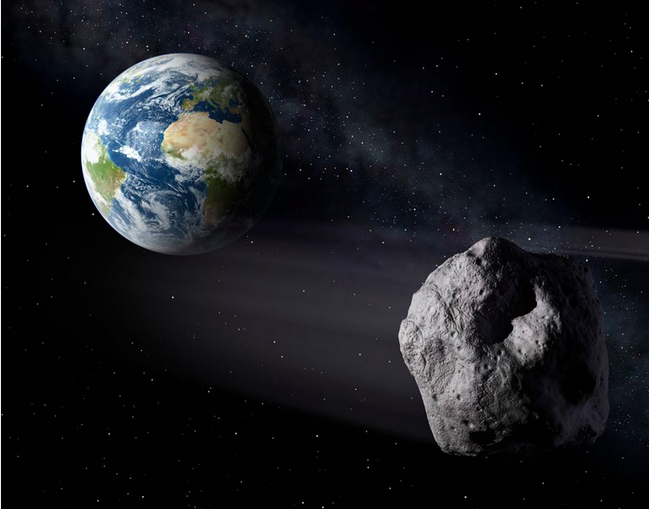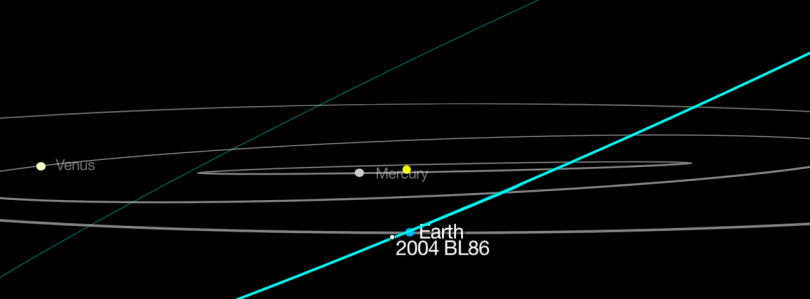aNewDomain — January 26, 2015 is the night to see a huge, mountain-sized asteroid pass awfully close to the Earth. It’s the closest any known space rock of a decent size has ever come to Earth, scientists say, adding that asteroid 2004 BL86 will keep that record until asteroid 1999 AN10 scoots by the Earth in 2027. Here’s how to watch asteroid 2004 BL86 on its brisk, bright flyby Monday night.
NASA officials say that the passing asteroid will rate as a magnitude 9 in terms of visual brightness. That means it will be visible from both the Earth’s hemispheres. You’ll be able to check it out, weather permitting, from 10 p.m. to midnight Monday night, January 28, 2015 Eastern Standard Time. All you’ll need is a small hobbyist telescope or, even, a big pair of binoculars, to watch it zip by. Find it in the south-southeastern side of the evening sky between the Hydra and Cancer constellations. It’ll move fairly quickly by Jupiter, always a bright site in the winter night.
If you can’t see the passage of asteroid 2004 BL86 from your backyard or you don’t have the telescope or big binoculars you need to see it, no problem. Just check out the Virtual Telescope site, which will be broadcasting the BL86 flyby live right here.
Says NASA Near Earth Object Program Office manager Don Yeomans:
While it poses no threat to Earth for the foreseeable future, it’s a relatively close approach by a relatively large asteroid, so it provides us a unique opportunity to observe and learn more.”
Check out the rendering of this celestial event by the European Space Agency (ESA), below. Scientists say this asteroid, at 1,800 feet (or about a third of a mile) wide, will pass at about 745,000 miles away from Earth. That’s the closest any space object has ever been recorded to come near Earth. It will keep that honor until 2027, when an asteroid passes even more closely.

For aNewDomain, I’m Gina Smith.
Cover art: Caltech/JPL














Closest ever? What about all the ones that hit us? Chelyabinsk?
…just sayin’.